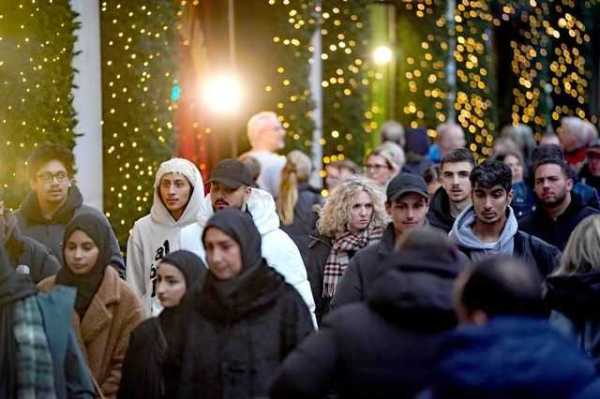
November saw a surge in spending on cough and cold remedies, providing a glimmer of hope for retailers as weak consumer confidence and escalating cast a shadow over the crucial period.
Analysts suggest that despite falling later this year, which resulted in artificially lower November figures, it's "unlikely to be a bumper Christmas for all" as many shoppers continue to budget carefully. The British Retail Consortium (BRC)-KPMG Retail Sales Monitor, which covers the four weeks leading up to November 23 and does not include Black Friday unlike last year's data, reveals that total UK sales dropped by 3.3% year on year, compared to a growth of 2.6% last November.
Food sales increased by 2.4% year on year over the three months to November, although this is a decrease from last year's growth of 7.6%. Non-food product sales fell by 2.1% year on year over the same period, compared to a decline of 1.6% the previous year. BRC chief executive Helen Dickinson commented: "While it was undoubtedly a bad start to the festive season, the poor spending figures were primarily down to the movement of Black Friday into the December figures this year."
She added: "Even so, low consumer confidence and rising energy bills have clearly dented non-food spending. Spending on fashion was particularly weak as households delayed purchases of new winter clothing, while health spending was boosted by the season’s arrival of coughs and colds."
"Retailers will be hoping that seasonal spending is delayed, not diminished, and that customers get spending in the remaining weeks running up to Christmas."
Sarah Bradbury, chief executive of analysts IGD, commented: "IGD’s latest research highlights signs of festive cheer, with 5% more shoppers than last year – 41% versus 36% – planning to spend what they want this Christmas. However, despite this uplift, it’s unlikely to be a bumper Christmas for all, as many remain focused on budgeting."
"The festive optimism is there, but the underlying caution means spending will still be influenced by economic pressures, especially on out-of-home activities."
Separate figures from Barclays reveal consumer card spending was down by 0.5% year on year in November – the first decline since July. Essential spending plummeted by 3.1%, its steepest fall in over five years.
However, overall spending on entertainment saw a rise of 10.8%, with bookings for blockbuster films Gladiator II, Wicked and Paddington In Peru causing cinema spending to surge by 22.8% year on year. The Barclays Consumer Spend report also indicates retail experienced a slowdown in the lead-up to the seasonal sales period after a three-month growth streak, down 2% as November’s cold snap deterred high street footfall.
Supermarket spending dropped 1.8%, as 64% of consumers claimed they were seeking ways to cut the cost of their weekly shop. Jack Meaning, the chief UK economist at Barclays, has highlighted several factors impacting consumer spending in November, saying: "Understandably, a number of factors weighed on consumer spending in November, notably easing consumer confidence post-summer, and expectations that, post-Budget, inflation and interest rates will stay higher in the coming months."
He also added, "Looking ahead, the extent to which we see a seasonal bounce around Black Friday and Christmas will serve as a good test of the economy going into 2025."